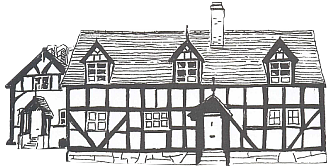Avian Influenza
Birdkeepers asked to remain vigilant in light of recent outbreaks
Shropshire Council’s regulatory services team are urging birdkeepers to remain vigilant in light of the recent outbreaks of Avian Influenza in neighbouring counties Cheshire and Herefordshire.
Avian Influenza (bird flu) is a notifiable animal disease that mainly affects birds, but it can also affect humans and other mammals.
Whilst there are currently no cases in Shropshire, animal health officers are asking birdkeepers, including domestic and commercial keepers, to check stock regularly for signs of Avian Influenza, and also to register their stock in case contact needs to be made.
Public Health England advises that the risk to the public’s health is very low, and the Food Standards Agency (FSA) has said that on the basis of the current scientific evidence, avian influenzas pose a very low food safety risk for UK consumers.
Signs of bird flu
Highly pathogenic avian influenza (HPAI) is the more serious type. It is often fatal in birds. The main clinical signs of HPAI in birds are:
- swollen head
- blue discoloration of neck and throat
- loss of appetite
- respiratory distress such as gaping beak, coughing, sneezing, gurgling, rattling
- diarrhoea
- fewer eggs laid
- increased mortality
Clinical signs can vary between species of bird and some species (for example ducks and geese) may show minimal clinical signs.
Advice
If you suspect any type of bird flu in poultry or captive birds you must report it immediately by calling the Defra Rural Services Helpline on 03000 200 301.
If you find dead wild waterfowl (swans, geese or ducks) or other dead wild birds, such as gulls or birds of prey, you should report them to the Defra helpline (03459 33 55 77 – please select option 7).
